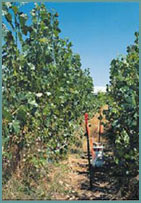The lowly poplar tree is well on its way to becoming the new hero of environmental cleanups. Fast-growing hybrid poplars
can provide an economical and reliable way to clean contaminants from the soil.
Scientists have found that poplars absorb a variety of chemicals which they safely store or release into the air as less
volatile compounds. In the late 1980s, Lou Licht did some of the pioneering experiments with poplars while completing his
doctoral studies at the University of Iowa. He then founded Ecolotree, a company that uses poplars for a variety of
environmental cleanups. Last year, the company grossed $500,000 and planted more than 2 million trees in the United States
and Europe.
One of Licht’s first jobs at an Oregon landfill may hold the key to further financial success, as well as economic and
environmental benefits for nearby communities. Landfills are typically covered with plastic at a cost of $100,000 an acre.
The plastic prevents water from seeping into the garbage and then possibly leaking out of the sealed landfill and
contaminating the groundwater. Because regulations did not require a plastic cap at the Oregon site, Licht instead
deployed his trusted trees. He planted 11,000 poplars atop the site for just $10,000 an acre. Not only did the poplars
protect the groundwater, but Licht says, they also created a leafy green forest that provides wildlife habitat, cheap fuel,
and new raw materials.
Environmental engineers are beginning to adopt Licht’s methods for the obvious cost benefits
and economic rewards. As a result, Licht too may reap some rewards when he is granted two patents later this year for
landfill capping and soil detoxification.




